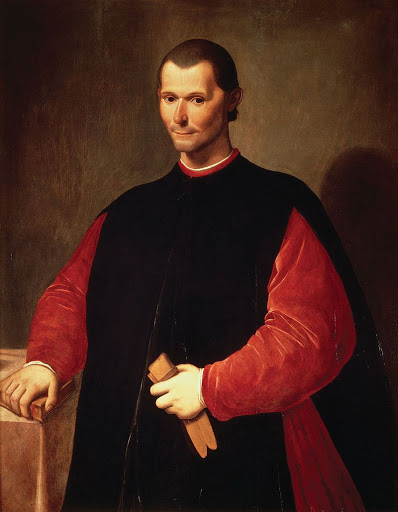The Wolf in CIO's Clothing, book review: Animal cunning in the C-suite


But even now there's much interest in the life of the 15th/16th century Florentine philosopher Niccolo Machiavelli, hence books like The New Machiavellianism: How to Wield Power in the Modern World(2010). Written by Tony Blair's one-time chief-of-staff Jonathan Powell, this is a useful guide to learning from the medieval master.
Going further back, we can read Hale and Rowse's excellent Machiavelli and Renaissance Italy (1972), which puts Machiavelli in his correct political context as a man born at a time of enormous political upheaval and enlightenment, all of which influenced his outlook.
Which brings us to Gartner analyst Tina Nunno's book, The Wolf in CIO's Clothing: A Machiavellian Strategy for IT Leadership, first published in ebook form in 2013 and now available, updated, in hardback. In it, Nunno argues that, far from promoting deviousness in his ideas and ideals, Machiavelli enshrined many of the strategies and virtues that the average intelligent CIO could use to his or her advantage today.
Machiavelli's thoughts on leadership are enshrined in two books he wrote in tandem, publishing the shorter one, The Prince, in 1513 and the longer (and more interesting) one, Discourses, in 1531.
Nunno's book runs to a brief but information-packed 232 pages, complete with illustrations, and takes the form of a tutorial that guides the reader through Machiavelli's theories while setting them in a 21st-century context.
What comes across immediately is just how much of Machiavelli's writing still resonates today. Nunno's book is split into three sections: Power, Manipulation and Warfare, each further subdivided into autonomous sections, which makes for easy reading.
Power plays
For example, under Power we find a section headed: 'Recognise the power you have and increase it exponentially'. Nunno begins this section by quoting from Machiavelli:
He who does not lay the foundations for his power beforehand may be able by great ability and courage do so afterwards; but it will be done with great trouble to the builder and danger to the edifice.
(The Prince: Chapter Six, "Of new principalities that have been acquired by the valour of the prince and his own troops.")
If this chapter sounds as though it's all about preparedness, it is. As Nunno puts it: "According to Machiavelli, it is better to plan ahead to gain power so that you have it in store in case you need it, rather than try to amass it when you may be under attack."
Nunno points out that leadership is really all about power, but she also says that "few [of them] directly confront the issue of power". Power and leadership "are inseparable," she adds.
Although many mistakenly view power as inherently negative, Machiavelli, says Nunno, "treated it as an essential tool". We're all aware of the warning that power corrupts, but we also need to understand that "strong leadership requires a thoughtful and constructive relationship with power".
As Nunno points out, power comes in many forms, "from coercion to credibility," and its use cannot be reduced to a simple question like "extreme avoidance versus dictatorial abuse".
What she's talking about here is different shades of grey -- the fact that power is "ethically neutral". This thought puts her in a minority in the modern world, where so many believe that power -- and especially too much power -- is something to guard against. However, Nunno contends that power is to be welcomed and used -- but used in the right way and for the right reasons.
As she points out, "nobody appreciates having power used against them", but equally "nobody appreciates working for a leader they perceive as weak of ineffectual."
At bottom, power "is the ability to make something happen, an attribute we expect of all leaders". And while what we make happen may be good or bad, "looking to make something happen is an ethically neutral experience," says Nunno.
To master power, as with any skill, "a leader must first embrace it unapologetically and recognise that wielding it is both an opportunity and a threat."
What CIOs need to do, says Nunno, is "approach the opportunities that power brings with enthusiasm but also approach the threat of the damage that power can do with the respect it deserves."
Animal cunning
Nunno echoes Machiavelli by using animal role models for different behaviours. "Today's CIO should aspire to be a Wolf," she says; "Machiavelli advised that leaders should take inspiration from two 'beasts': the fox to avoid the traps and the lion to scare away the wolves. But for CIOs the ultimate animal is the Wolf -- an ideal balance of an intelligent, social creature that can inspire loyal followership and create group affinity; and the ruthless predator that can lead a pack of strong fighters, win in a competitive environment and command a large territory."
If all this sounds a bit obvious, perhaps it is -- to some. But there's much more in Nunno's book (just as there is in Machiavelli): she devotes a chapter to deceit, for example, examining not just how others deceive but, equally importantly, how we deceive ourselves.
The Wolf in CIO's Clothing abounds with useful insights, and is well worth a look if you're climbing the slippery slope of IT management.